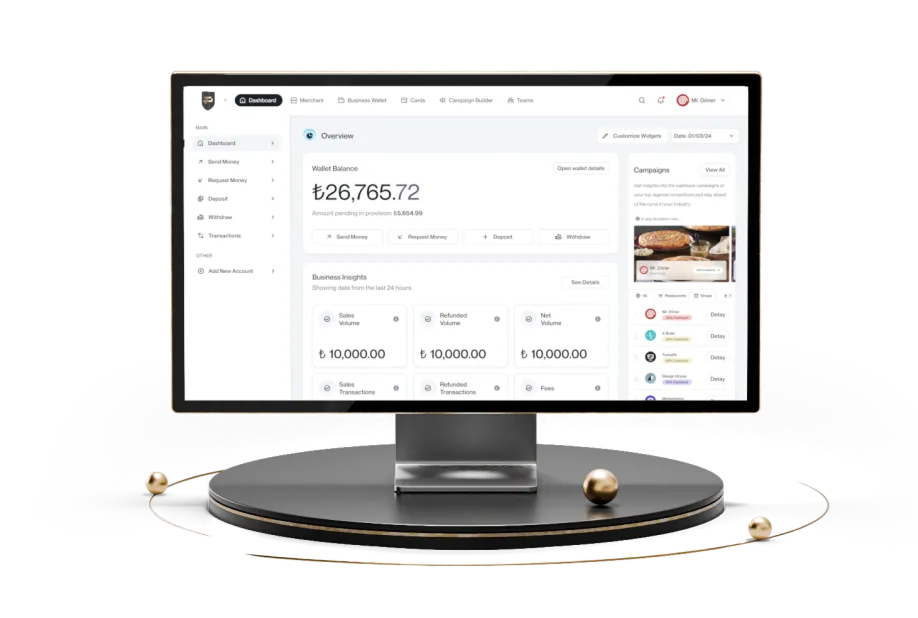Is Early Repayment Advantageous?
Is paying off credit card installments or a loan before its due date beneficial? Early repayment of installment payments or early loan repayment are financial strategies that many people consider periodically. Steps like early repayment of installment payments or loan repayment may ease the budget and reduce the interest burden. However, whether these actions are always advantageous depends on details such as early repayment penalties and whether interest reductions are applied. In this article on Papel Blog, we answer questions like the difference between installment shopping and a loan, the advantages of early repayment, what should be considered when making an early repayment, and in which situations early repayment might be a sensible choice.
What is an installment payment, and what does early repayment mean?
An installment payment refers to paying a product or service fee in equal installments over a specific period. The most common example of this payment method is installment shopping with credit cards. When making large expenditures in a single payment is difficult, installment payments can be ideal.
Early repayment, on the other hand, means fully paying off an installment or loan payment before its due date. With early repayment, the debtor pays all remaining installments and ends the debt before its due date. Early repayment can sometimes provide interest reductions, but some credit institutions may charge an early repayment penalty. This penalty compensates for the loss of interest income that banks would have received during the standard term of the loan.
Difference between installment shopping and a loan
Installment shopping is done with a credit card, and the purchase cost is paid in installments over a certain period. These purchases, which usually have a certain interest rate applied within the credit card limit, are a preferred payment method as they make large expenditures easier. Acting consciously during credit card use is essential to avoid incurring high debt. The most significant difference between installment shopping and a loan is that installment payments can be made without application.
On the other hand, a loan refers to borrowing through banks and financial institutions. The borrowed money is usually repaid over a specific term with a certain interest rate. In loan usage, which is generally based on an agreement with a bank, factors such as credit score are essential for approving loan applications. The most fundamental difference between a loan and an installment payment is that the payment period is usually longer.

Financial advantages of early repayment
Early repayment, which offers some financial advantages, varies depending on the type of loan and the bank's practices. Therefore, a detailed evaluation should be made before making a decision. Before deciding to make an early repayment, reviewing your loan agreement and contacting your bank would be beneficial. The advantages of early repayment made under the right conditions can be listed as follows:
Eliminating the total interest burden
Early repayment reduces the principal part of the loan debt in a shorter time, decreasing the total amount of interest to be paid. Especially in fixed-interest loans, when early repayment is made, an interest reduction can be applied based on the remaining term.
Impact on credit score
Regular and early-paid loan debts will positively affect a person's credit score. Thus, the person can obtain more advantageous terms in future loan applications, and the likelihood of approval increases. However, early repayment can also negatively affect the credit score in some cases. Therefore, it may be beneficial to seek help from a consultant before paying off the debt early.
Things to consider when making an early repayment
Just as early repayment has advantages, to benefit from these advantages, certain matters need to be considered. The points to be careful about can be listed as follows:
Bank or company penalties
Since early repayment can affect banks' income planning, an early repayment penalty may be applied to some loans. However, these penalties are only applicable to housing loans. The rule for housing loans is as follows: for loans with a remaining term of less than 36 months, the early repayment penalty cannot exceed 1% of the amount paid; loans with a remaining term of more than 36 months cannot exceed 2%.
In consumer and vehicle loans, there is no early repayment penalty, and if early repayment is made, an interest reduction can be applied to the remaining principal.
Need for prior notification
If you consider making an early repayment, you may need to inform your bank in advance. Since each bank's early repayment procedures may differ, you should learn about your bank's practices and act accordingly when making an early repayment. Additionally, in insurance policies linked to the loan, if the loan is paid off early, the insurance contract can be terminated with a petition regarding the termination in terms of insurance coverage, and the remaining amount of the insurance premium for the remaining period can be refunded.
In which situations is early repayment sensible?
Early repayment made under the right conditions can have some financial advantages. Situations where early repayment might be a sensible choice are as follows:
Periods of rising interest rates
Rising interest rates increase the cost of credit. Therefore, early repayment will reduce the total interest burden and provide an advantage, especially in fixed-interest loans. Thus, the person can save a significant amount in the long term. For example, if a 24-month loan is paid off early in the 18th month, a discount equivalent to the interest for the remaining 6 months can be applied.
Need to alleviate the debt burden
Early repayment can be a sensible choice to reduce the monthly payment burden. By paying off the debt early, you can eliminate the monthly installment burden and provide flexibility in your budget. Thus, saving or directing your finances towards other financial goals will be possible.
If you’d like to learn more about the innovative financial solutions Papel offers to enhance user experience, you can explore how Papel is redesigning finance with artificial intelligence and smart products here.
The information presented in this blog post is general only and does not constitute legal, financial, or investment advice. The content has been prepared for informational purposes, and it is recommended that you seek professional advice for your specific circumstances. The statements in the article do not entail any binding or responsibility and reflect only the author's evaluations. All responsibility for your decisions lies with you, and Papel Electronic Money and Payment Services Inc. does not accept any liability in this context.

